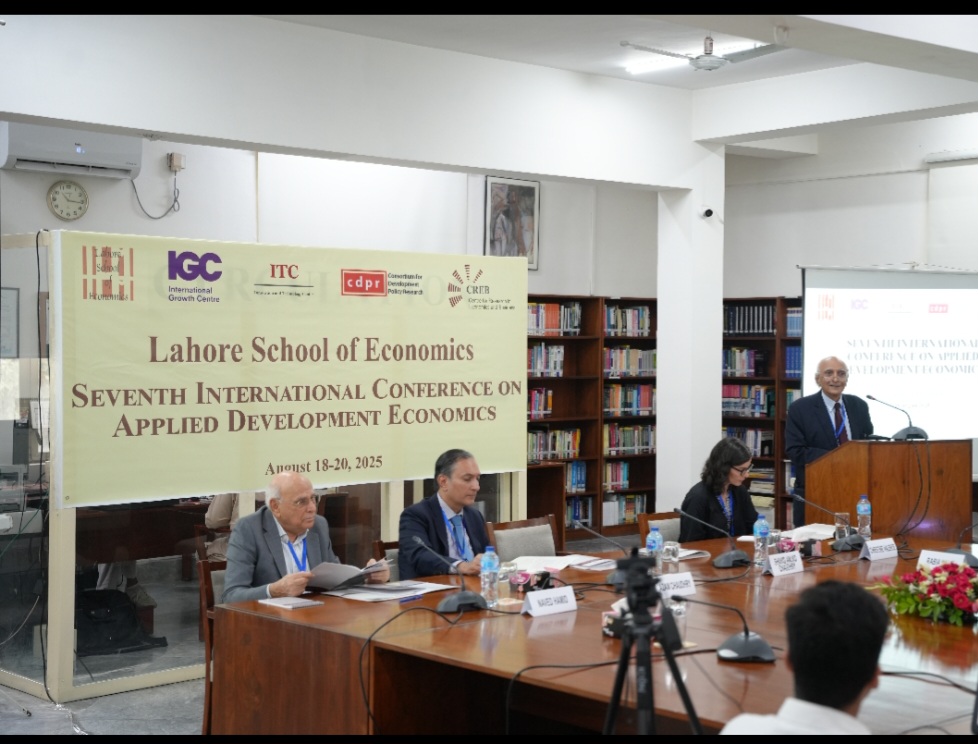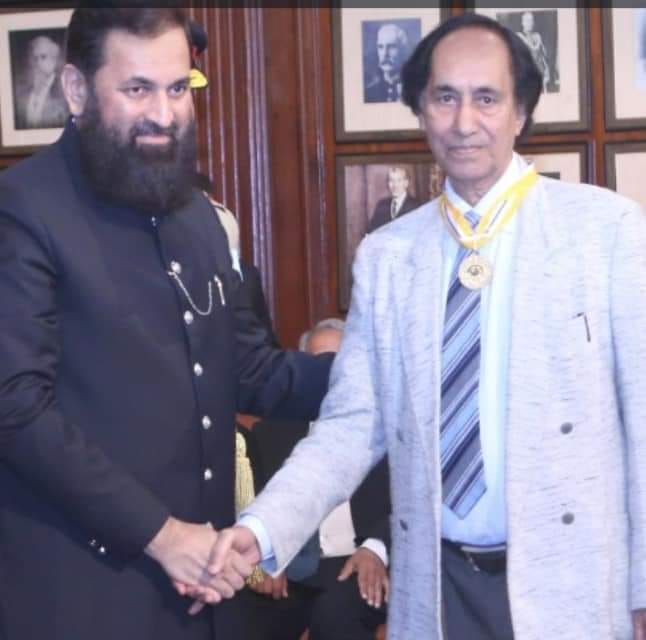Lahore School of Economics Hosts International Conference on Development Economics with Focus on Policy Impact
Lahore School of Economics Hosts International Conference on Development Economics with Focus on Policy Impact

LAHORE: The Lahore School of Economics launched its 7th International Conference on Applied Development Economics (ADE) on Monday, bringing together researchers from nine countries to address critical development challenges facing low- and middle-income nations.
The three-day conference, running from August 18-20, 2025, is being hosted by the Centre for Research in Economics and Business (CREB) and the Innovation and Technology Centre (ITC) in collaboration with the International Growth Center and the Consortium for Development Policy Research.
The conference aims to highlight research with lasting policy impact for sustainable growth in developing countries while providing early-career researchers opportunities to receive feedback on their work. The event also seeks to foster collaborative exchanges among international scholars.
The comprehensive program covers nine thematic areas: Health, Gender, Intergenerational Mobility, Work and Information Frictions, Adaptive Strategies for Climate Resilience, Digital Interventions and Labor Market Adjustments, Trade Frictions and Industrial Policy, Poverty Alleviation, and Human Capital and Education Frontiers.
Dr. Shahid Chaudhry, Rector of the Lahore School of Economics, delivered the inaugural address, expressing satisfaction at hosting economists from nine countries. He provided his perspective on Pakistan's current economic situation, identifying macroeconomic mismanagement as the primary factor behind the country's poor economic performance.
The conference opened with a plenary address by Professor Christine Valente from the University of Bristol, who examined factors determining contraception demand in high-fertility settings and the role of husbands in family planning decisions. Her research suggests that low pregnancy avoidance rates can be attributed to differing subjective expectations between spouses.
The first technical session, chaired by Dr. Theresa Chaudhry, Professor of Economics at Lahore School of Economics, featured three presentations focusing on maternal and child health outcomes.
Syeda Warda Riaz, Assistant Professor of Economics at LUMS, presented findings on transport subsidy programs for maternal healthcare. Her research demonstrated that modest financial incentives successfully improved child health outcomes, with height-for-age z-scores increasing by 0.30 standard deviations and moderate stunting decreasing by 8 percentage points.
Meiping Sun from Fordham University discussed the long-term and multi-generational benefits of skilled birth attendance (SBA). Her study revealed that having trained midwives or doctors present during delivery yields significant benefits across generations through proper delivery techniques and emergency obstetric care.
Meseret Abebe from Addis Ababa University concluded the session by presenting research on early childbearing's impact on education using Peru's Young Lives Panel Study data. The findings showed that early childbearing results in a 17 percent decrease in years of education, a 6 percent lower chance of completing primary education, and a 33 percent reduction in school enrollment likelihood.
The second plenary address was delivered virtually by Professor Zaki Wahhaj from King's College London's Department of International Development. His presentation focused on legal interventions addressing child marriage in Bangladesh, specifically examining a video-based information campaign about new child marriage legislation passed in March 2017. The research demonstrated that strengthening community surveillance around child marriage significantly improves outcomes for adolescent girls.
The day's final session, chaired by Dr. Naved Hamid, Director of CREB and Professor of Economics at Lahore School of Economics, addressed gender-related workplace challenges.
Dr. Hamna Ahmed, Associate Professor at Lahore School of Economics and Research Fellow at CREB, examined how information asymmetries within households influence women's employment preferences. Her research identified misaligned spousal beliefs as a key non-economic barrier to female labor force participation.
The session concluded with a presentation by Kate Vyborny, Economist at the World Bank South Asia Region Gender Innovation Lab. Her study investigated how limited information about workers' past performance affects hiring, wages, and productivity, particularly for women in South Asia. The research showed that implementing a centralized reference-check system improves firm-worker matching, reduces gender bias, and expands employment opportunities.
The conference continues through August 20, 2025, with additional sessions covering the remaining thematic areas including climate resilience, digital interventions, trade policy, and education frontiers. The event represents a significant gathering of development economics research with potential to influence policy-making across developing nations.


No comments yet.